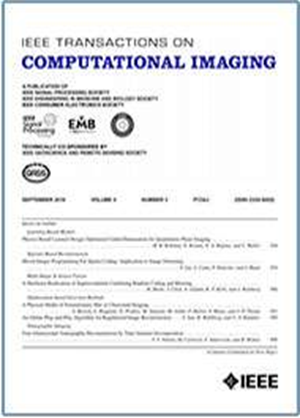零射击MRI重构的去噪知识转移模型
IF 4.8
2区 计算机科学
Q2 ENGINEERING, ELECTRICAL & ELECTRONIC
引用次数: 0
摘要
尽管全监督深度学习方法在加速磁共振成像(MRI)重建方面取得了显著成就,但在许多情况下无法获得全采样或高质量的数据。零采样学习可以在采样不足的数据上进行训练。然而,欠采样数据中的有限信息抑制了神经网络发挥其全部潜力。本文提出了一种新的学习框架,增强了零采样学习中学习先验的多样性,提高了重建质量。它包括三个阶段:多加权零点集成学习、去噪知识转移和模型引导重建。在第一阶段,使用k空间中的多加权损失函数对集成模型进行训练,得到质量和多样性更高的结果。在第二阶段,我们提出使用深度去噪来提取集成模型中的知识。此外,使用自然图像上预训练的权重初始化去噪器,将外部知识与欠采样数据的信息相结合。在第三阶段,将去噪器插入到迭代算法中,产生最终的重构图像。大量的实验表明,我们提出的框架超越了现有的零射击方法,可以灵活地适应不同的数据集。在多线圈重建中,我们提出的零射击学习框架优于最先进的基于去噪的方法。本文章由计算机程序翻译,如有差异,请以英文原文为准。
Denoising Knowledge Transfer Model for Zero-Shot MRI Reconstruction
Though fully-supervised deep learning methods have made remarkable achievements in accelerated magnetic resonance imaging (MRI) reconstruction, the fully-sampled or high-quality data is unavailable in many scenarios. Zero-shot learning enables training on under-sampled data. However, the limited information in under-sampled data inhibits the neural network from realizing its full potential. This paper proposes a novel learning framework to enhance the diversity of the learned prior in zero-shot learning and improve the reconstruction quality. It consists of three stages: multi-weighted zero-shot ensemble learning, denoising knowledge transfer, and model-guided reconstruction. In the first stage, the ensemble models are trained using a multi-weighted loss function in k-space, yielding results with higher quality and diversity. In the second stage, we propose to use the deep denoiser to distill the knowledge in the ensemble models. Additionally, the denoiser is initialized using weights pre-trained on nature images, combining external knowledge with the information from under-sampled data. In the third stage, the denoiser is plugged into the iteration algorithm to produce the final reconstructed image. Extensive experiments demonstrate that our proposed framework surpasses existing zero-shot methods and can flexibly adapt to different datasets. In multi-coil reconstruction, our proposed zero-shot learning framework outperforms the state-of-the-art denoising-based methods.
求助全文
通过发布文献求助,成功后即可免费获取论文全文。
去求助
来源期刊

IEEE Transactions on Computational Imaging
Mathematics-Computational Mathematics
CiteScore
8.20
自引率
7.40%
发文量
59
期刊介绍:
The IEEE Transactions on Computational Imaging will publish articles where computation plays an integral role in the image formation process. Papers will cover all areas of computational imaging ranging from fundamental theoretical methods to the latest innovative computational imaging system designs. Topics of interest will include advanced algorithms and mathematical techniques, model-based data inversion, methods for image and signal recovery from sparse and incomplete data, techniques for non-traditional sensing of image data, methods for dynamic information acquisition and extraction from imaging sensors, software and hardware for efficient computation in imaging systems, and highly novel imaging system design.
 求助内容:
求助内容: 应助结果提醒方式:
应助结果提醒方式:


